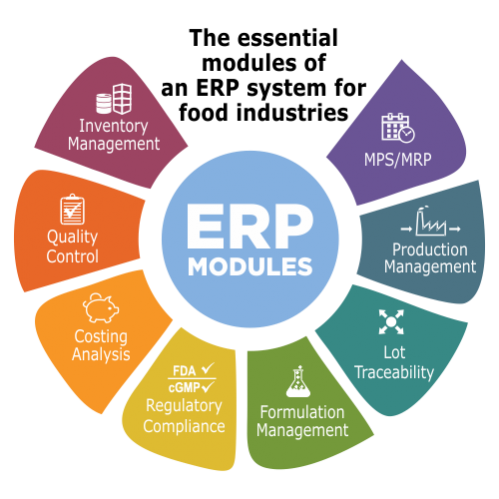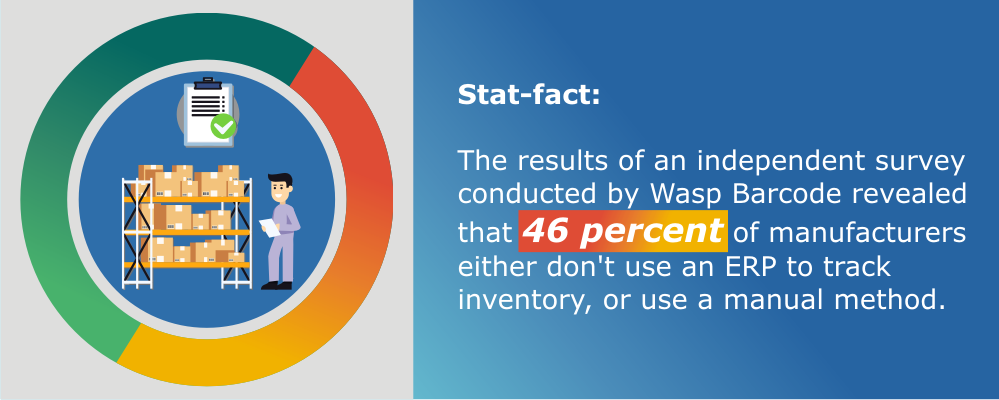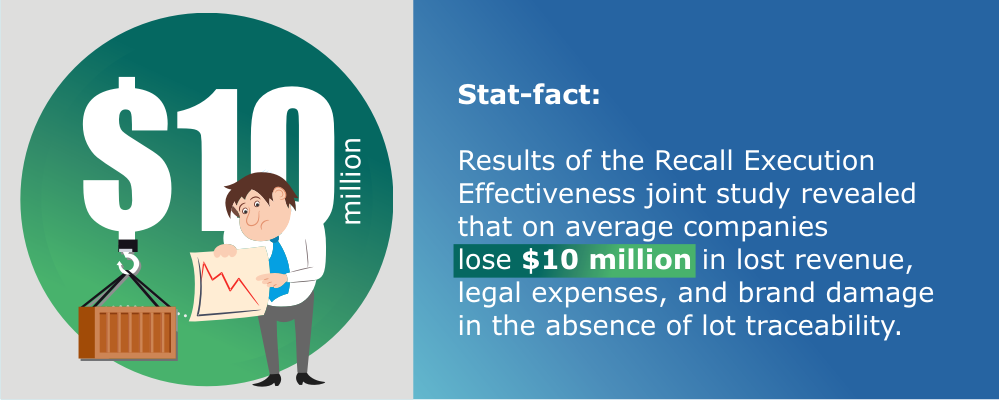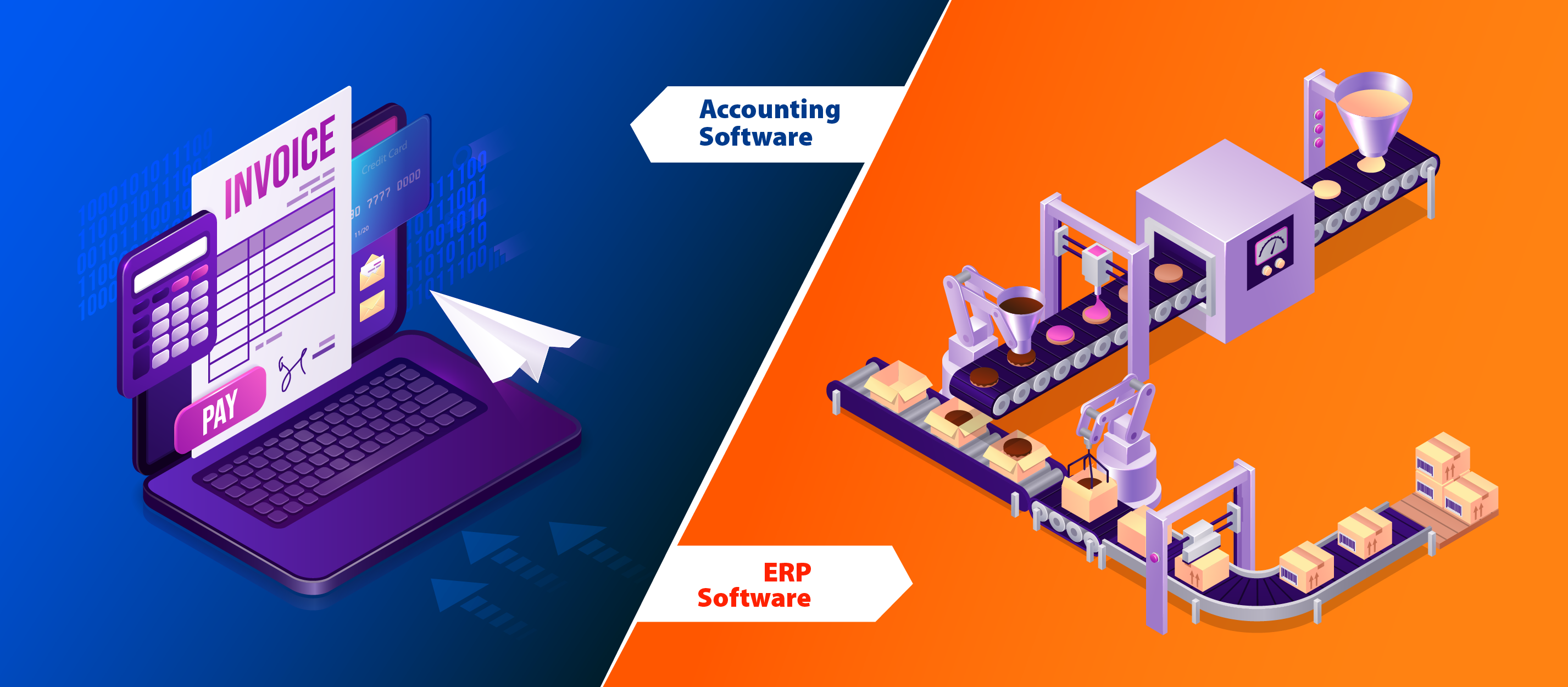
There are several process manufacturing businesses such as pharmaceuticals, food & beverages, chemicals, paints & coatings, and personal care & cosmetics. Manufacturers working in any of these industries face countless issues and problems.
Handling challenges on various fronts such as traceability, compliance, quality, inventory, etc., the process manufacturers look for Enterprise Resource planning (ERP) Software, which over the years has become a fundamental requirement for their business.
Talking particularly about the food industry, a food ERP system helps manufacturers effectively deal with their unique challenges by meeting the specific needs of the business, continuously simplifying their business processes, and combining different areas of business.
How does an ERP for food industry help?
The food & beverage industry is extra large and diverse in nature. It is made up of several sub-verticals, namely– dairy, meat & poultry, packaged food, fresh produce, beer, and edible oil, etc.
This tells us why the industry faces challenges on multiple fronts.
The food manufacturers work mostly on thin margins, and face challenges such as dealing with demand fluctuations, long & complex supply chains, tight competition, strict regulatory & food safety requirements, and inventory which comes with limited shelf life, etc.
With the help of its modules, an ERP software for food industry helps manufacturers meet the aforementioned challenges, and also predict the accurate demand levels, produce cost-effective products of the highest quality, guarantees supply chain transparency, improve profit margins and stick to the strict food safety and regulatory requirements.
Let’s take a look at the food ERP modules that make it possible:

Inventory management software
Not using an ERP for food industry can result in a huge amount of capital being used in inventory.
Among other things, not having an ERP can mean that the food manufacturers find it difficult to manage and report their inventory information, track inventory within their business, and update inventory after every action in real-time.
Quality Control module
Another area where food manufacturers struggle is quality control. Food products have a limited shelf life, and manufacturers need to know how fast the material should be consumed before they expire.
They also need a functionality that allows them to guarantee quality right from the time the material enters the four walls to the time the finished products leave them.
A food ERP software’s Quality Control (QC) functionality alerts the manufacturers when ingredients are near to their expiry dates.
Also, with the help of quality tests, it allows the manufacturers to receive, produce and ship products that meet customer and quality requirements, and take immediate and appropriate action against items that fail QC tests.
Costing analysis module
Determining the price that guarantees profitability, and controlling the cost without compromising with quality is often a headache for food manufacturers.
But the cost analysis module of an ERP for the food industry makes it possible. Along with closely monitoring and controlling costs, it also eases decision-making on prices of end items keeping profitability in mind.
With the ‘what if’ analysis ability, it allows comparison between actual costs, planned purchase costs, and standard costs.
Regulatory compliance module
The trend of food products coming from countries with lower health and safety standards is increasing.
For this reason, more stricter regulations and guidelines are applied on food manufacturing. And manufacturers face several challenges while following them.
Hence, the manufacturers turn to food ERP software, which helps them meet all the local, regional, national, and international regulatory requirements, as well as cGMP guidelines.
Additionally, ERP also makes it possible to track non-conformance (NC) and perform corrective action preventive action (CAPA) for rejected material. It also helps in generating labels that completely follow all government regulations.
Lot traceability module

With strict regulations in place, the need for lot tracking and traceability arises.
A food ERP system provides automated end-to-end bi-directional lot traceability from raw materials to the finished product and vice versa.
The module allows tracking the movement and destination of various products, raw materials, other ingredients.
It also manages packaging throughout the different stages of production, processing, and distribution.
This helps the food manufacturers to find out exactly where the nonconformity happens and which lot to recall. All this is done practically in very less time.
Formula management module
Managing recipes is a tough job for the manufacturers. This job is primarily made complex by the need to maintain different units of measurement, unlimited manufacturing instructions, and numerous versions of it, etc.
And it is not possible to manage all this manually. Through its various features, a food ERP solution makes formula management easier for the manufacturers.
It allows storage, retrieval, and revision of every formula used in the business, and comes with several other functionalities such as support to different units of measurement, automatic formula sizing, instant roll-back, anytime-anywhere material substitution, etc.
Production module
For a multi-levelled and complex industry like the food industry, a food ERP software proves to be an advantage.
By it, numerous capabilities, and effective management, tracking & control of the production activities from batch creation, allocation, inspection, quality checking, to finally closing, the production module power up the manufacturing business on the production front.
Food ERP also allows full and partial closing of batches for immediate shipment of urgent orders, thus simplifying and smoothening the overall production process.
MPS/MRP module
The Material Requirement Planning (MRP) & Master Production Scheduling (MPS) functionalities help manufacturers simplify and optimize the production process.
Using MRP, manufacturers can do several things such as
- Getting required materials on-time
- Timely delivery of finished products
- Make ideal use of manufacturing resources.
Whereas, with MPS functionality, manufacturers can make better production plans, prioritize the requirement, meet consumer demands, protect the lead time, and balance the production function on the whole.

Closing thoughts
BatchMaster ERP for Food & Beverages comes with all the food ERP modules & functionalities mentioned in this blog and has enough room to put up all the micro-verticals of the food & beverage manufacturing industry.
It comes from the leading makers of process manufacturing ERP solutions for over 30 years, BatchMaster. Get in touch with our food experts today for a demo of this feature & experience-rich solution.


















